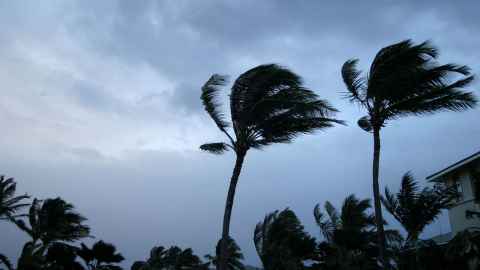$15b in weather losses later, and still nobody's in charge
12 June 2025
Comment: Councils are playing infrastructure roulette - not because they're reckless, but because they're being forced to independently solve a national crisis, says Tim Welch.

Comment: Picture this: You wake up to find the road to your house has vanished overnight. Not metaphorically – literally gone, claimed by the sea. Your home stands intact, but without access, it’s as useful as a boat without water. Welcome to the reality facing thousands of New Zealand homeowners, where infrastructure is retreating faster than our policies can keep up.
When a storm in Wellington ripped a roof off a Newlands duplex and sent it flying two streets away last week, it wasn’t just weather theatre. It was the latest warning that councils are playing infrastructure roulette – not because they’re reckless, but because they’ve been left to make billion-dollar decisions without a map.
The $42 million slipping away
When coastal roads fail, homes become uninhabitable, even if the houses survive. Foxton Beach Road in the Manawatū faces imminent erosion. Move it two years early and save $42 million in residential insurance claims. The math is simple: no road access means no habitability, which triggers payouts.
Yet across New Zealand, we’re watching this expensive tragedy unfold in slow motion. Port Waikato loses 1.5m of coastline annually – triple the 1980s rate. Councils deploy sandbags while the ocean advances. Without national guidance, they’re stuck guessing at tipping points.
Insurance: The postcode lottery
Wellington homeowners pay the nation’s highest insurance premiums at $4467 annually, double Auckland’s. Some have reported increases from $3000 to $9000 in one year. Your postcode now determines whether you can afford your own home.
Insurers are flying blind too. Without national frameworks for infrastructure retreat, they’re guessing which properties face future access risks.
In Napier, more than 200 homes were incorrectly classified as flood-prone – not through malice, but because insurers lack standardised infrastructure data. Even corrected, premiums stay high because companies must price in the uncertainty of when roads, water, and power might fail.
Council paralysis
Every council faces the same rising seas and intensifying storms. Yet ask 10 councils how to handle an eroding coastal road, and you’ll get 10 different answers.
Dunedin, facing a $2-$7.1 billion-cost to adapt instead of retreat over the next 75 years will keep everything where it is. Other councils still debate whether to act at all, if there is such a thing as anthropogenic climate change. Same ocean. Same rising seas. Different planets.
This isn’t council incompetence – it’s what happens when we force 67 local authorities to independently solve a national crisis. Without standards, million-dollar decisions rest on local politics and capacity – not consistent data.
The missing manual
New Zealand has no national framework for infrastructure retreat decisions. No standards. No thresholds. No consistency. Each council interprets risk through its own lens, turning life-altering decisions into a lottery.
We need a standardised toolkit giving planners clear triggers: relocate roads at X erosion rate, retreat infrastructure when Y homes lose access, strengthen when costs are below Z threshold. Without these answers, we’re gambling with homes, futures, and billions in public money.
The policy void
The repeal of the Natural and Built Environment Act in 2023 created what lawyers call a “regulatory vacuum”. Nobody knows who’s in charge. The Government’s reform plan pushes frameworks to mid-2027, leaving a multi-year gap while climate risks accelerate.
Every month of delay costs millions. Right now, three Waikato coastal communities wait for retreat decisions while erosion accelerates. If we had a national framework today, Waikato District Council could stop guessing about Port Waikato’s future and start planning with certainty.
In Wellington, homeowners face another premium hike while councils debate. The sector knows what’s needed. Councils know they’re overwhelmed. Yet we drift through this void, haemorrhaging money and time.
Two years after Auckland’s floods, just 18 of 95 affected homes have risk categorisation. Families panic during rain warnings, desperate to relocate but trapped in bureaucracy. They’re prisoners in their homes for believing our planning was adequate.
The 2023 weather disasters cost $15 billion, tens of times more expensive than any previous event. We’ve spent $10 billion rebuilding infrastructure since 2012. These aren’t numbers. They’re invoices for procrastination.
The framework we need
A national framework would transform retreat decisions. Clear thresholds based on hazard projections, asset criticality, and dependent properties. Standardised data insurers can trust. Consistent triggers giving communities certainty.
In other sectors, this is standard practice. In infrastructure planning, it’s still missing. Councils waste resources developing separate approaches while communities wait and premiums soar. Everyone loses in this vacuum – councils, insurers, and most of all, homeowners.
We can continue watching infrastructure fail and homes become uninsurable while costs spiral. Or we can develop frameworks for proactive decisions, saving money and lives.
The technology exists. The data exists. The need is obvious. What’s missing is the political will to stop treating infrastructure retreat like tomorrow’s problem.
The question isn’t whether we’ll develop these frameworks, it’s whether we’ll do it before or after the next $15-billion disaster. Given our track record, I wouldn’t bet your house on it. With current premiums, who could afford that bet anyway?
Dr Timothy F. Welch is a Senior Lecturer in the School of Architecture and Planning at the Faculty of Education.
This article reflects the opinion of the author and not necessarily the views of Waipapa Taumata Rau University of Auckland.
This article was first published on Newsroom, $15b in weather losses later, and still nobody's in charge, 12 June, 2025.
Media contact
Margo White I Research communications editor
M: 021 926 408
E: margo.white@auckland.ac.nz